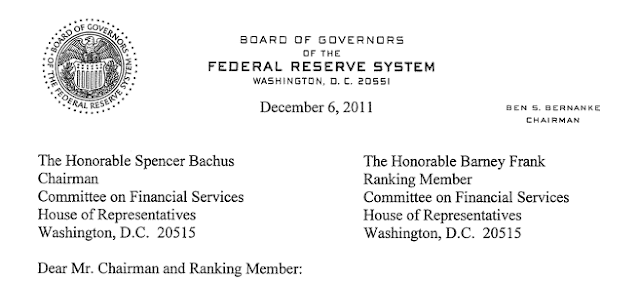The Market
TechnicalThe indices (DJIA 12727, S&P 1353) meandered around yesterday, finishing down modestly on the day. They closed well within both their (1) short term trading ranges [12022-13302, 1292-1422], and (2) intermediate term uptrends [11973-16973, 1261-1841].
Within their short term trading ranges, additional support exists at 12345/1292 and resistance at 12903/1364. With regard to the pennant formation that the S&P is now forming, the upper boundary intersects at 1365, the lower boundary at 1343.
Volume fell; breadth was weak. The VIX rose (1) remaining above the lower boundary of its intermediate term trading range and (2) continuing to develop a head and shoulders formation.
GLD increased fractionally, closing above the lower boundary of its intermediate term trading range.
Bottom line: the primary trends of the Averages remain in tact and are in no danger of being challenged. At current prices, they are roughly at the mid point of their short term trading ranges. There is little incentive, technically speaking, for action. Our Portfolios will begin to nibble at the S&P 1250-1300 level.
Similarities in the 2011 and 2012 charts (short):
http://www.zerohedge.com/news/its-different-time-scariest-equity-market-chart-aroundUpdate on ‘the best stock market indicator ever’ (short):
http://advisorperspectives.com/dshort/guest/John-Carlucci-Best-Indicator-Ever-Update.phpUpdate on the Shanghai Composite index (short):
http://www.bespokeinvest.com/thinkbig/2012/7/16/make-or-break-time-for-china.htmlAn historical look at stocks’ performance in July (short):
http://blog.stocktradersalmanac.com/post/Christmas-in-July-is-Over-QQQ-COMPQFundamental
HeadlinesYesterday’s economic data were tilted to the negative side: June retail sales were really bad; May business inventories were up but unfortunately sales were down; on the positive side, the NY Fed manufacturing survey came in ahead of estimates. Most of investor focus was on the retail sales number which in addition to being lousy in and of itself was also the third poor report in a row. This clearly is not inspiring; however, as I have said repeatedly throughout this sluggish economic recovery, within the context of the totality of the data reported to date, it is not surprising nor a cause to re-think our forecast.
The other factors on investors’ minds were:
(1) the Tuesday/Wednesday Bernanke testimony before congress. As you might expect, everyone is praying for a hint of QEIII. As you know, I think that it will happen eventually whether Bernanke hints at it today or not; I just don’t think it will be the good news that most others do,
Will QEIII mark the Market top (medium):
http://www.zerohedge.com/news/things-make-you-go-hmmm-such-qe3-marking-sp500-top(2) the continuing drought that many fear will ultimately extend beyond corn to soybeans, wheat and cattle,
Update on the weather/grain crops (medium):
http://www.zerohedge.com/news/putting-corn-harvest-drought-and-flood-context(3) the ongoing circus in Europe.
Merkel hangs tough (medium):
http://www.bloomberg.com/news/2012-07-15/merkel-says-attempts-to-avoid-greater-oversight-will-fail.htmlThe IMF takes a crowbar to global growth and rising debt/GDP ratios (both medium):
http://www.zerohedge.com/news/imf-says-japan-and-spain-are-done-debt-ratio-will-never-stabilizehttp://www.zerohedge.com/news/imf-bath-salts-everything-global-recovery-showing-signs-further-weaknessBottom line: yesterday investors appeared to have ignored (1) the awful retail sales number, (2) the mounting pressure on food inflation from the continuing drought in the Midwest and (3) the fact that the Germans have seemingly undone all the supposed positive steps of the Spanish bank bailout two weeks and pinned their hopes on the Ber-nank whispering QEIII. He may do it; but history suggests any benefit will be short lived especially in the absence of assistance from the morons in congress.
About the only factor in the above statement that isn’t reasonably accounted for in our Models is the potential for a further spike in food prices. If the drought continues for the next 30+ days, I may have to mark our economic growth expectation down a notch.
In the meantime, stocks (as measured by the S&P) are Fairly Valued (as determined by our Valuation Model). If it weren’t for the ongoing clusterf**k in Europe, I might be tempted to buy some of the candidates on our Buy Lists. However, because I am so uncertain as to how to measure the extent of risk of a more severe outcome than expected, I want a bit more cushion. So our Portfolios will start to nibble 5% lower.
This strategy piece is focused mostly on fixed income securities; but I think the investment rationale applies to all asset classes and in that sense it is a good read (medium):
http://advisorperspectives.com/commentaries/pimco_71612.phpFor those interested, here is a complete rundown of the HSBC money laundering scandal; it is long and includes the senate’s study:
http://www.zerohedge.com/news/senate-throws-book-hsbc-accusing-it-massive-money-laundering-drug-trafficking-and-terrorist-finSteve Cook received his education in investments from Harvard, where he earned an MBA, New York University, where he did post graduate work in economics and financial analysis and the CFA Institute, where he earned the Chartered Financial Analysts designation in 1973. His 40 years of investment experience includes institutional portfolio management at Scudder, Stevens and Clark and Bear Stearns. Steve's goal at
Strategic Stock Investments is to help other investors build wealth and benefit from the investing lessons he learned the hard way.








